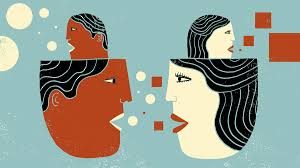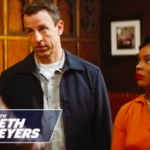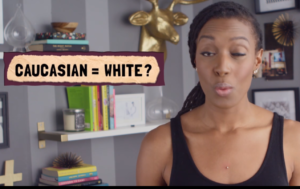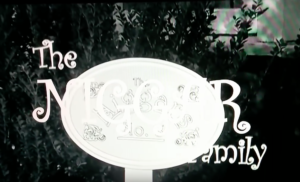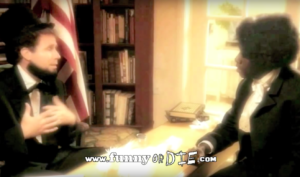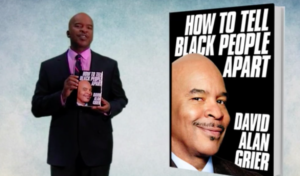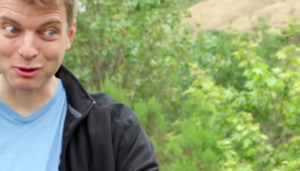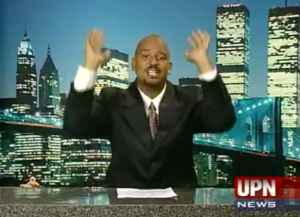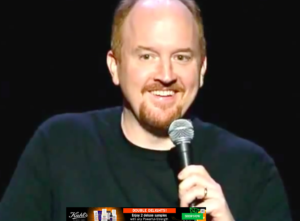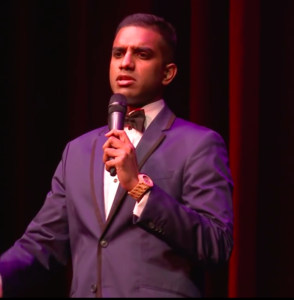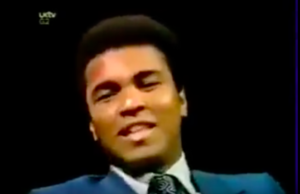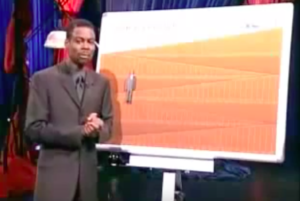Recommended Resources
Consider the offerings on my site just a small sampling of what the racial justice community has to offer.
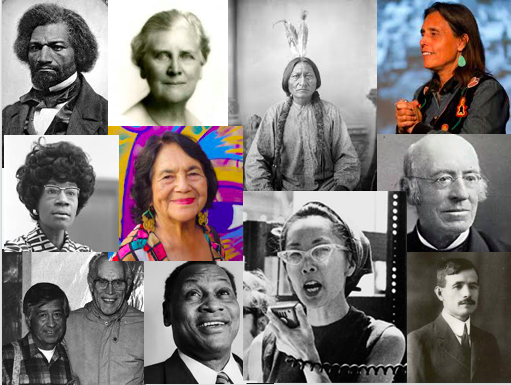
Clockwise from upper left: Fredrick Douglass, Mary White Ovington, Sitting Bull, Winona LaDuke, William Lloyd Garrison, Takao Ozawa, Yuri Kochiyama , Paul Robeson, Fred Ross and Cesar Chavez, Shirley Chisholm. Center: Dolores Huerta
White anti-racists have long been in the mix of those fighting for justice. Like so much about social justice movements and leaders, this was an unknown to me. I wonder if I'd known earlier about who these people were, the movements they were a part of, what drove them, what inspired them, who they worked in solidarity with, and what their impacts were, if I would've woken up sooner.
Role models are crucial in imagining ourselves in roles counter to what the status quo mainstream provides us. I had plenty of models of white women "not rocking the boat." I could've used some models of white women who prioritized justice over not-boat-rocking.
For that reason, when doing my flagship presentation, I'm A Good Person! Isn't That Enough, I always include this little collage. Always, white people in the audience ask, "Who is that? How did I never know about these people?" Initially I created it to remind myself that white people have long been part of justice movements, neither saviors nor absent. This is just a teeny tiny sampling of justice leaders through history. There are so many more whose stories deserve to be told in our schools and in our media.
The below lists were recently put on my radar. Please use and share them to help white people understand our anti-racist legacy, the white anti-racist shoulders we can choose to stand on.
Teaching While White's White Anti-Racist Activists
The Cross Cultural Solidarity History Project's Examples of White Antiracism in U.S. History
If you have more examples of white anti-racists, please email Burnett.Lynn@Gmail.com (Cross Cultural Solidarity) or contact Teaching While White through their website.
- Checklist for Allies Against Racism, by John Raible
- Practical ways to be an ally to the Black community, by Shaelee Haaf
- How to be a white ally and practice anti-racism, MPR Radio with Angela Davis
- How to Turn White Privilege into Antiracist Allyship, WGBH Radio with Callie Crossley
- Active Allyship…it’s more than a #hashtag!, podcast by Sunni and Lisa
- Do’s and Don’ts of Being a Good Ally, by Angry Black Woman
- Guide to Allyship, a project created by Amélie Lamont
- Guidelines for Being Strong White Allies, by Paul Kivel
- How To Be A Better Ally: An Open Letter to White Folks, by Heben Nigatu and Tracy Clayton
- Outrage Isn't Allyship, by Holiday Phillips
- Speak Up: Responding to Everyday Bigotry, by Southern Poverty Law Center
- White Ally Toolkit, by David Campt
- White People’s Guide to Responsible Cross-Racial Engagement, by Debby Irving. Why and how it matters that white people show up in cross-racial relationships and settings aware of the dynamics, a.k.a. the elephant in the room.
The best events are packed with intention setting and planning. Following are community engagement practices that previous hosts have used to set my visit up for maximum impact. When done well, the process you create around the engagement actually builds/expands your capacity; the process is part of the product.
- Don’t go it alone. Co-host with two or more organizations
- Likely collaborators include: libraries, schools, universities, YWCAs, social justice organizations, SURJ chapters, churches, book groups
- Everyone benefits by:
- Sharing event costs
- Increasing breadth of perspective, collective wisdom, and skills
- Increasing event promotion and racial justice messaging reach
- Signaling to broader community that this is a common issue with broad community support, not the work of one radical group
- Drawing larger, more diverse audience
- Increasing chances of bringing in people new to racial/social justice
- Creating and/or deepening cross-organizational relationships
- Set realistic expectations for planning committee and attendees
- Expect my visit not to solve racism
- Expect my visit to be as much diagnostic as educational
- Be prepared to pay attention to where your community’s growing edges are so that you can create next-step events that further develop understanding and skill
- Plan on at least one follow up session in the week following my visit. Awakening people can feel deeply shaken. Acknowledging and supporting that process is essential to their development and ability to stay engaged. One or more facilitated dialog gatherings, or drop-in hours offered by a pastor or educator, can both support and help assess where people are
- Use the promotion of my visit to educate and spark curiosity in the broader community while drawing people to the actual event
- Use questions such as: Ever wondered why it’s so hard to make friends cross-racially? Ever wondered why racism seems to have returned with a vengeance? Curious to learn about xyz? Want to connect with other people also concerned about xyz?
- Offer a glimpse of what people don’t know they don’t know by naming that phenomenon: many white people don’t understand that the concept of race was invented as a political tool; most white people have bought into ideas about white people being smarter, harder working, and less criminal without understanding the history of that messaging; most white people don’t know that when their family got the GI Bill, Black and brown families didn’t; most white people remain completely unaware of what they were not taught in school or in mainstream media about the history of race in the US
- Avoid one-up or shaming language and instead create a sense of “we are all in this mess together and we need you, your resources, your time, and your connections to create a more humane and connected community” – this is what will draw new people into your local movement.
- Use the actual event to widen and deepen community interest in ongoing social justice education and activism
- Offer handout of local groups doing social justice education and activism, upcoming events, book groups, etc.
- Offer a table where people from local groups doing social justice education and activism can leave brochures and/or engage with people following my presentation. Encourage table engagement after Debby’s presentation/workshop
- Put a short survey on every seat to find learn both about people’s satisfaction with my event and, more importantly, about their interest in social justice. What brought them to this event? Why do they care? Did they have any major breakthroughs at this event? Is there anything they’re especially struggling with? What other issues would they like to connect with others/know more about (e.g. gender, class, immigration, etc..) – multiple choice works best on this last one
- Create a reassuring, inclusive community feeling from the get go. Many white people new to racial justice may be afraid they’re coming to be scolded
- Have people at the door welcoming attendees
- Debby will have music playing and a conversation-starting prompt on the landing slide if presentation or table if workshop
- If you expect to have more seats than attendees, rope, or tape off back rows to encourage people to sit closer to one another (this is about community engagement after all!)
- For both safety and follow-up reasons, know who’s in the room
- Use Eventbrite or another online registration platform to register people even if event is free
- If you skip the online registration process, have a sign-in sheet at the door with name and email and a monitor to see that everyone signs in
- Me and White Supremacy: A 28-Day Challenge to Combat Racism, Change the World, and Become a Good Ancestor, by Layla F. Saad is a part education, part activation, personal anti-racism tool for white people to examine how white supremacy has shaped our attitudes and behaviors.
- Waking Up White Study and Discussion Guides
- Presbyterian Church Waking Up White Study Guide, by Reverends Denise Anderson and Jan Edmiston. A four-week, faith-based study guide complete with facilitator tips and week-by-week curriculums.
- Truax/Hagen Ten-Week Study Guide, by St. Louis women Jenny Truax and Grace Hagen who created the curriculum for their own group’s use and offered to share it with all of us.
- Being the World We Dream About, a Unitarian Universalist resource and not just for faith organizations!
- Creating an Anti-Racist Agenda, list of resources to dig into true history, family histories, white identity, storytelling, challenging white culture, standing in solidarity, and more.
- Living in the Tension: The Quest for a Spiritualized Racial Justice workshop series, designed by educator Shelly Tochluk, offers groups a self-guided curriculum to be used in conjunction with her book by the same title.
- White Privilege: Let’s Talk — A Resource for Transformational Dialogue, from the United Church of Christ. An adult curriculum that’s designed to invite church members to engage in safe, meaningful, substantive, and bold conversations on race.
- Transforming White Privilege: A 21st Century Leadership Capacity, is a fee-based curriculum designed to help current and emerging leaders from a variety of sectors better identify, talk about and intervene to address white privilege and its consequences.
- Understanding What It Means To Be White And Privileged Journal, by Tom Schweizer. A journal to motivate you and/or your group to reflect on one question a week for a full year.
- The long history of US racism against Asian Americans, from ‘yellow peril’ to ‘model minority’ to the ‘Chinese virus’, by Adrian De Leon
- Confessions of a Former Bastard Cop, by Officer A. Cab
- Racism, Not Genetics, Explains Why Black Americans Are Dying or COVID-19, by Clarence Gravlee
- Why Native Americans took Covid-19 seriously: ‘It’s our reality‘, by Nina Lakhani
- A Love Letter to All the Overwhelmed White People Who Are Trying, by Melissa DePino
- 10 Ways Well-Meaning White Teachers Bring Racism Into Our Schools, by Jamie Utt
- Are We Raising Racists?, by Jennifer Harvey
- Dear NOT ALL White Feminists: Put Down Your Trump Sign, Pick up a Mirror, by Saira Rao
- How Racism Damages Us as White People, by Aaron Wilson-Ahlstrom
- How to Tell If You’ve Been Unintentionally Racist, by Nicki Lisa Cole
- It’s Not Just the South: Here’s How Everyone Can Resist White Supremacy, by Sarah van Gelder
- Making America White Again, by Toni Morrison
- Privilege 101: A Quick and Dirty Guide, by Sian Ferguson
- Understanding the Racial Wealth Gap, by Amy Traub, Laura Sullivan, Tatjana Mescheded, & Tom Shapiro
- What White Children Need to Know About Race, by Ali MIchael and Elenora Bartoli
- White Debt, by Eula Biss
- White Privilege: Unpacking the Invisible Knapsack and other essays, by Peggy McIntosh
- White Supremacy Culture, by Tema Okun
- White Women’s Tears and the Men Who Love Them, by Robin DiAngelo
- 35 Dumb Things Well-Intended People Say, by Maura Cullins
- “All the Real Indians Died Off”: And 20 Other Myths About Native Americans, by Roxanne Dunbar-Ortiz
- Between the World and Me, by Ta-Nehisi Coates
- Braiding Sweetgrass: Indigenous Wisdom, Scientific Knowledge and the Teachings of Plants, by Robin Wall Kimmerer
- Caste: The Origins of Our Discontents, by Isabel Wilkerson
- The Color of Law: A Forgotten History of How Our Government Segregated America, by Richard Rothstein
- A Different Mirror, by Ronald Takaki
- Eloquent Rage: A Black Feminist Discovers Her Superpower, by Brittney Cooper
- How to Be an Antiracist, by Ibram X. Kendi
- An Indigenous Peoples’ History of the United States, by Roxanne Dunbar-Ortiz
- Just Mercy: A Story of Justice and Redemption, by Bryan Stevenson
- Moving Diversity Forward: How to Go From Well-Meaning to Well-Doing, by Vernā Myers
- The New Jim Crow: Mass Incarceration in the Age of Colorblindness, by Michelle Alexander
- Our Black Year: One Family’s Quest to Buy Black in America’s Racially Divided Economy, by Maggie Anderson
- So You Want to Talk About Race, by Ijeoma Oluo
- Tears We Cannot Stop: A Sermon to White America, by Michael Eric Dyson
- Toxic Inequality: How America’s Wealth Gap Destroys Mobility, Deepens the Racial Divide, and Threatens Our Future, by Tom Shapiro
- What if I Say the Wrong Thing? 25 Habits for Culturally Effective People, by Vernā Myers
- White Fragility: Why It’s So Hard for White People to Talk About Racism, by Robin DiAngelo
- White Rage: The Unspoken Truth of Our Racial Divide, by Carol Anderson
- Why Are All the Black Kids Sitting Together in the Cafeteria: And Other Conversations About Race, by Beverly Daniel Tatum
- Witnessing Whiteness: The Need to Talk About Race and How to Do It, by Shelly Tochluk
Want more books? Google “Antiracist Book Lists“
- Mark Charles / ‘We the People’ – the three most misunderstood words in US history
- Debby Irving / Finding myself in the story of race
- Verna Myers / How to overcome our biases? Walk boldly toward them
- Jeff Duncan- Andrade / Growing roses in concrete
- Melody Hobson / Color blind or color brave?
- Chimamanda Adiche / The danger of a single story
- Bryan Stevenson / We need to talk about an injustice
- Jamila Lyiscott / 3 ways to speak english
- John Hunter / Teaching with the World Peace Game
- Sir Ken Robinson / Changing Education Paradigms
- Shelly Tochluk / Let’s Talk About Race
ONLINE FILMS & VIDEOS
13th, documentary by Ava DuVernay that looks at how the country's history of racial inequality drives the high rate of incarceration in America. (90 minutes)
A Conversation About Liberation on the Eve of Juneteenth, Malia Lazu, Verna Myers, Susanne Goldstein, and Debby Irving share their thoughts on the significance of Juneteenth 2020
All Houses Matter, Instagram video short building on metaphor about why All Lives Matter is a misplaced response to Black Lives Matter
“Defund the police,” explained offers insight into the roots of policing in the US and Canada as well as how today’s current demands to defund the police are rooted in a decades old history (7 minutes)
How Can We Win, Kimberly Jones asks us to stop arguing over whether looting during protest is right or wrong to why? Why are people looting during protest? (7 minutes)
I can’t breathe…again! video by Nick Cannon about the trauma that is white supremacy (3 minutes)
The Doll Test, experiment shows how early ideas of racial inferiority and superiority are internalized by American children. (9 minutes)
Colorblind: Rethinking Race (2012), conveys the connection between racism’s roots and today’s racially divided society. (82 minutes)
Conversations on Race, New York Times Op-Doc series by Blair Foster and Michèle Stephenson (5-8 minutes each)
Deconstructing White Privilege with Dr. Robin DiAngelo, explanation of what white privilege is and how it operates above and below the surface. (22 minutes)
I Didn’t Tell You, Ever wonder what a day in the life of a person of color is like? Listen to this poem, written and spoken by Norma Johnson. From a collection she’s developing titled, Poems for My White Friends. (7 minutes)
The Iroquois Influence on the Constitution,Tiokasin Ghosthorse, host and producer of First Voices Indigenous Radio explains how US founding fathers used what they learned from Iroquois law in the US Constitution. (4 minutes)
The Disturbing History of the Suburbs, episode from the hit series Adam Ruins Everything. This one explores the roots of racial segregation in housing, lending, and education. (6 minutes)
In the White Man’s Image, a look at the Indian Boarding Schools movement. (56 minutes)
True Colors, Diane Sawyer’s 1991 PrimeTime Live episode depicting daily life for a black American in contrast to a white American. (16 minutes)
Under Our Skin, Seattle Times asks 16 participants to share their understanding of a range of race-related terms and concepts.
Unnatural Causes: Is Inequality Making Us Sick? seven-part documentary examining the intersection of racism and health. (4 hours total)
Race: The Power of an Illusion, powerful three-part, three-hour film exploring the biology of skin color, the concept of assimilation, and the history of institutional racism. (3 hours total)
Racism is Real, split-screen video depictiing the differential in the white/black lived experience. (3 minutes)
Slavery by Another Name, PBS documentary that dispels one of white America's most cherished narratives: that slavery ended with the Emancipation Proclamation. (90 minutes)
Systemic Racism Explained, animated video short depicting differential outcomes at the intersection of race and housing (4 minutes)
This Defining Moment: A Conversation with Sherrilyn Ifill and Bryan Stevenson, virtual conversation that frames the historic moment 2020 is in the struggle for racial justice. (1 hour)
Thus A Black Woman Speaks, poem by actress Beah Richards (Guess Who’s Coming to Dinner). A searing call to awareness and action to white women written decades ago and still fully relevant today. (15 minutes)
What Kind of Asian Are You? Humorous two minute youtube video that illustrates the utter silliness of the way many white Americans interact with Asian Americans. (2 minutes)
What Would You Do: Bicycle Thief Episode ABC TV show that stages a locked up bike being removed by three people: a young white male, a young black male, and a young white female. See how passersby react differently based on gender and race of the “Bicycle Thief.” (12 minutes)
White Bred, quick intro to how white supremacy shapes white lives and perception. (5 minutes)
Why I’m not racist is only half the story, Robin DiAngelo explains why accepting our racial conditioning is so hard for white people, and how that very challenge holds racism in place. (6 minutes)
Teaching While White, hosted by longtime educators Jenna Chandler-Ward and Elizabeth Denevi, TWW’s podcast focuses on how whiteness shows up in the education sector and what anti-racist educators are doing to challenge that. Episodes feature different nationally renowned anti-racist educator guests. (any episode – times vary)
All My Relations, hosted by Matika Wilbur (Swinomish and Tulalip) and Adrienne Keene (Cherokee Nation) this podcast “explores indigeneity in all its complexity.” Episodes focus on issues such as DNA identity, appropriation, feminism, food sovereignty, gender, sexuality, and more while “keeping it real, playing games, laughing a lot, and even crying sometimes.” (any episode – one-ish hour each)
Code Switch, hosted by journalists Gene Demby and Shereen Marisol Meraji, both people of color, this podcast is curated by a team of NPC journalists of color who navigate the complexities of race, both professionally and personally, daily. Episodes focus on a wide range of issues overlapping race, ethnicity, and culture. (any episode – times vary)
Breakdances with Wolves Podcast, hosted by Gyasi Ross, Wesley (“Snipes Type”) Roach, and Minty LongEarth, “a few Natives with opinions and a platform.” Episodes report on current events through an indigenous perspective.(any episode – one-ish hour each)
Black Like Me, host Dr. Alex Gee “invites you to experience the world through the perspective of one Black man, one conversation, one story, or even one rant at a time.” (any episode – times vary)
Scene on Radio – Seeing White Series, host John Biewen and collaborator Chenjerai Kumanyika explore Whiteness over the course of 14 episodes. Where does it come from? What does it mean? Why does it exist? (Episode S2 E1: Turning the Lens – 16 minutes)
On Point Radio – Oklahoma To Incorporate 1921 Tulsa Race Massacre Into Statewide School Curriculum host David Folkenflik interviews Tulsans about the 1921 “Black Wall Street” race massacre and recent efforts to integrate it into the Oklahoma education system. (46 minutes)
TED Radio Hour – Mary Bassett: How Does Racism Affect Your Health? host Guy Raz speaks with Dr. Mary T. Bassett, Director of the FXB Center for Health and Human Rights at Harvard University about how and why race affects the medical attention you receive, your baby’s chances of living, and even life expectancy. (12 minutes)
Here & Now – Without Slavery, Would The U.S. Be The Leading Economic Power? host Jeremy Hobson explores with Edward Baptist, author of The Half Has Never Been Told: Slavery and the Making of American Capitalism, how slavery established the United States as a world economic power. (15 minutes)
NPR Morning Edition – You Cannot Divorce Race From Immigration journalist Rachel Martin talks to Pulitzer Prize-winning journalist Jose Antonio Vargas for a response to a story in The Atlantic, written by David Frum, proposing the U.S. cut legal immigration by half. (6 minutes)
- Citizenship & Social Justice
- Dismantling Racism
- Divided No Longer
- Dismantling the Racism Machine: A Manual and Toolbox
- Movement for Black Lives
- Race Forward
- Racial Equity Tools
- Racial Wealth Audit
- Shelly Tochluk
- Showing Up For Racial Justice
- Washington Peace Center
- White Awake
- White People Challenging Racism: Moving From Talk to Action
- AWARE – LA (Los Angeles) Unmasking Whiteness
- Crossroads Antiracism Organizing & Training
- National Conference for Community and Justice Anti-Racism Workshops
- The Flourish Collective
- Cultural Somatics Training & Institute
- Undoing Racism: The People’s Institute for Survival and Beyond
- Vernā Myers Online Diversity and Inclusion Courses
- Visions Inc.
- White People Challenging Racism: Moving From Talk to Action
Please let me know if you know of more educational opportunities to include on this list by contacting me.
Consider this a short list of conferences you might consider attending. I'll add to the list over time!

Yes it’s okay to laugh, as long as the comedian knows her/his/their racial equity stuff.
A few of my colleagues have been exploring the role of comedy in racial justice education and advocacy. The questions they are raising fascinate me and have me thinking too. What can humor impart that other means of communication can not? What makes us laugh? How can we use comedy in ways that advance racial and other forms of equity while not perpetuating a “laughing at ‘others’ ” culture? What does laughing do for us?
Below is one article and whole lotta clips to get you laughing, learning, questioning, and thinking. The common thread here is that these comedians know their racial equity stuff.
Enjoy, and please share resources you think would work well on this page!
Check out this piece from NPR’s Hidden Brain Podcast Series
White Savior: The Movie Trailer by Late Night with Seth Meyers
The Surprisingly Racist History of “caucasian” by MTV Decoded’s Franchesca Ramsey
Drunk History w/ Will Ferrell, Don Cheadle & Zooey Deschanel
How to Tell Black People Apart by the Jimmy Kimmel Show
What kind of Asian are you? by KenTanaka
Black Man – UPN News – by The Chris Rock Show
Louis CK – I Enjoy Being White
Aamer Rahman (Fear of a Brown Planet) – Reverse Racism
Muhammad Ali – Why is Jesus white?
- Checklist for Allies Against Racism, John Raible
- Personal Self-Assessment of Anti-Bias Behavior, Anti-Defamation League
- Harvard University’s Project Implicit Test, Tony Greenwald and Mazarin Banaji
- Cultural Diversity Self-Assessment Survey, Lower Columbia College
- NAIS Assessment of Inclusivity and Multiculturalism, National Association of Independent Schools (NAIS)
- Diversity Climate Assessment Survey Results and Analysis, College of Information Studies, University of Maryland
- Intercultural Development Inventory (IDI), Interculturalist
- Equity Scorecard, Center for Urban Education

Wise and “woke” people have existed for centuries. Here are some teachers who keep me inspired.
“We are here to awaken from the illusion of our separateness.” Thich Nhat Hahn
“If you have come here to help me, you are wasting our time. But if you have come because your liberation is bound up with mine, then let us work together.” – Lilla Watson
“Whatever affects one directly, affects all indirectly. I can never be what I ought to be until you are what you ought to be. This is the interrelated structure of reality.” – Martin Luther King, Jr.
“If I love you, I have to make you conscious of the things you don’t see.” – James Baldwin
“[White people] are…still trapped in a history which they do not understand; and until they understand it, they can not be released from it.” – James Baldwin
“When the missionaries came to Africa they had the Bible and we had the land. They said ‘Let us pray.’ We closed our eyes. When we opened them we had the Bible and they had the land.” – Desmond Tutu
“The oppressors do not perceive their monopoly on having more as a privilege which dehumanizes others and themselves. They cannot see that, in the egoistic pursuit of having as a possessing class, they suffocate in their own possessions and no longer are; they merely have.” – Paulo Freire
” … do not congratulate yourself that you have solved anything. In simple language, you have sold out, surrendered, given up. It takes strength to affirm the highest prerogative of your spirit. And you will find that if you do, a host of invisible angels will wing to your defense, and the glory of the living God will envelop your surroundings because in you He has come into His own. Give me the strength to be free.” – Howard Thurman
“Let sincere white individuals find all other white people they can who feel as they do — and let them form their own all-white groups, to work trying to convert other white people who are thinking and acting so racist. We will meanwhile be working among our own kind. Working separately, the sincere white people and sincere black people actually will be working together.” – Malcolm X
“Impossible is just a big word thrown around by small men who find it easier to live in the world they’ve been given than to explore the power they have to explore. Impossible is not a fact. It’s an opinion. Impossible is not a declaration. It’s a dare.” – Muhammad Ali
“No one is born hating another person because of the color of his skin, or his background, or his religion. People must learn to hate, and if they can learn to hate, they can be taught to love, for love comes more naturally to the human heart than its opposite.” – Nelson Mandela
“Justice is what love looks like in public.” – Dr. Cornell West
“Try not to resist the changes that come your way. Instead let life live through you. And do not worry that your life is turning upside down. How do you know that the side you are used to is better than the one to come?” – mevlana jelaluddin rumi – 13th century
“I don’t know where we’re going. I just agreed to go.” – unknown
“Man cannot discover new oceans unless he has the courage to lose sight of the shore.” – Andre Gide
“Courage is the commitment to begin without any guarantee of success.” – Johann Wolfgang von Goethe
“Courage is what it takes to stand up and speak; courage is also what it takes to sit down and listen.” – Winston Churchill
“… the most difficult struggle you have will not be against lumbering companies, it will not be against multinational corporations which pollute the Earth. The most difficult struggle you‘ll have will be to cleanse your heart of racism – from the assumption that what you have to say is so important. You are a minority in the world – you need to really understand that for you to grow.” – Dhoruba Bin-Wahad
“Who looks outside, dreams. Who looks inside, awakens.” – Carl Jung
“Prejudice is a burden which confuses the past, threatens the future, and renders the present inaccessible.” -Maya Angelou
“I speak Americans, for your own good. We must and shall be free, in spite of you. You may do your best to keep us in wretchedness and misery, to enrich you and your children, but God will deliver us from under you. And woe, woe, will be, to you if we have to obtain our freedom by fighting. Throw away your fears and prejudices then enlighten us and treat us like men, and we will like you more than we do now hate you.” – David Walker, 1829
“Give a man of color an equal opportunity with the white from the cradle to manhood, and from manhood to the grave, and you would discover the dignified statesman, the man of science, and the philosopher.” – Maria Stewart, 1833
“Whites tend to see full equality of opportunity as an idealized goal, and they measure progress by comparing the present to the past, noting how far society has come. But African Americans and other nonwhites are more likely to see the racial equality as a necessary condition for justice and to judge current racial inequalities against a future of equal opportunity, which still seems far off.“ – Dr. Ronald M. Davis
“Let me be a free man, free to travel, free to stop, free to work, free to trade where I choose, free to choose my own teachers, free to follow the religion of my fathers, free to talk, think, and act for myself. Whenever the white men treat the Indian as they treat each other then we shall have no wars.” – Chief Joseph, Nez Perce, 1879
“The fight is never about grapes or lettuce. It is always about people.” – Cesar Chavez,
“For me, forgiveness and compassion are always linked: how do we hold people accountable for wrongdoing and yet at the same time remain in touch with their humanity enough to believe in their capacity to be transformed?” – Bell Hooks
“Race is not a cause, it’s a part of becoming fully human.” – Dr. Billie Mayo
“Have patience with everything unresolved in your heart and try to love the questions themselves as if they were locked rooms or books written in a very foreign language. Don’t search for the answers, which could not be given to you now, because you would not be able to live them. And the point is to live everything. Live the questions now. Perhaps then, someday far in the future, you will gradually, without even noticing it, live your way into the answer.”- Rainer Maria Rilke
“Changing your mind is one of the best ways of finding out whether or not you still have one.” – Taylor Mali
“We have forgotten we belong to each other.” – Mother Theresa
“Out beyond ideas of wrongdoing and right-doing, there is a field. I’ll meet you there. When the soul lies down in that grass, the world is too full to talk about. Ideas, language, even the phrase “each other” doesn’t make any sense.” – mevlana jelaluddin rumi, 13th century
“There is no social-change fairy. There is only change made by the hands of individuals.” – Winona LaDuke
“All social justice is science fiction. We are creating a world that does not yet exist.” – Dream Hampton
“In the End, we will remember not the words of our enemies, but the silence of our friends.” – Martin Luther King, Jr.
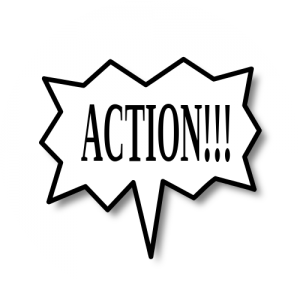
It is so easy for people not experiencing racial harm to retreat back into the comfort of that privilege. It takes immense intention to commit to and follow through with the hard work of liberation from racist policies, laws, and practices. Below is a framework I learned from White People Challenging Racism: Moving from Talk to Action. I’ve used it multiple times over that past decade, and have watched hundreds of others successfully use it too. Whether your goal is to pull together some family and friends for a book read/movie viewing and conversation, or to start an AntiRacism Coalition in your town, or to change a school mascot, or something even more ambitious, strategy and planning are critical to set you up for success. So, what’s your plan? How are you going to make it a success? I wish you well in your efforts to create a more humane and just world!
SPHERE
What area of your life will you focus on? Start where you already have relationships. Think about family, friends, book groups, workplace, faith space, hobby or sport group, local library, local schools, etc.
GOAL
What do you hope to accomplish, change, or achieve? Be as specific as possible.
WHO
Who is involved? Who will be affected?
WHO ELSE
Who is already working on this or related issues? Make plans to contact them. (no need to reinvent the wheel)
ACTION STEPS
List the steps you will need to take to accomplish your goals.
OBSTACLES
What are some of the things that might stand in your way or sidetrack you?
MOTIVATION
Why are you doing this? How will you deal with setbacks?
TESTS OF SUCCESS
How will you know you have accomplished your goals? What can/will success look like?
TIMELINE
What should happen when? Break your plan down into small steps and include each step on your timeline.
ALLIES
Who could be your allies in this? Who can you call upon to help you with which parts of your plan? To collaborate with you start to finish? To provide moral support?
RESOURCES
What will you need to do this?
ACCOUNTABILITY
Who will help hold you accountable to make sure you reach your goal?
Adapted by Debby Irving from
White People Challenging Racism: Moving from Talk to Action
Look what I made for my family's Fall Break (aka Thanksgiving) table!
I'm making the activity sharable so all of us interested in justice can help our families understand how divisions are built on untruths.
1) click on link below to open PDF
2) print on paper of your choice (I chose orange, cuz fall)
3) fold in half lengthwise
4) cut on dotted lines
5) now you have 9 flashcards!
6) have those gathered around the table read the card Q & A's in order from 1 to 9
❤️ prepare with care
If you are further along in your journey than some in your friend/family circle, what skills can you use to set the stage for mutual learning while diffusing polarization, blame, and shame?
We learn better when we learn together!
PDF LINK --> Fall Break Myth Buster Flashcards
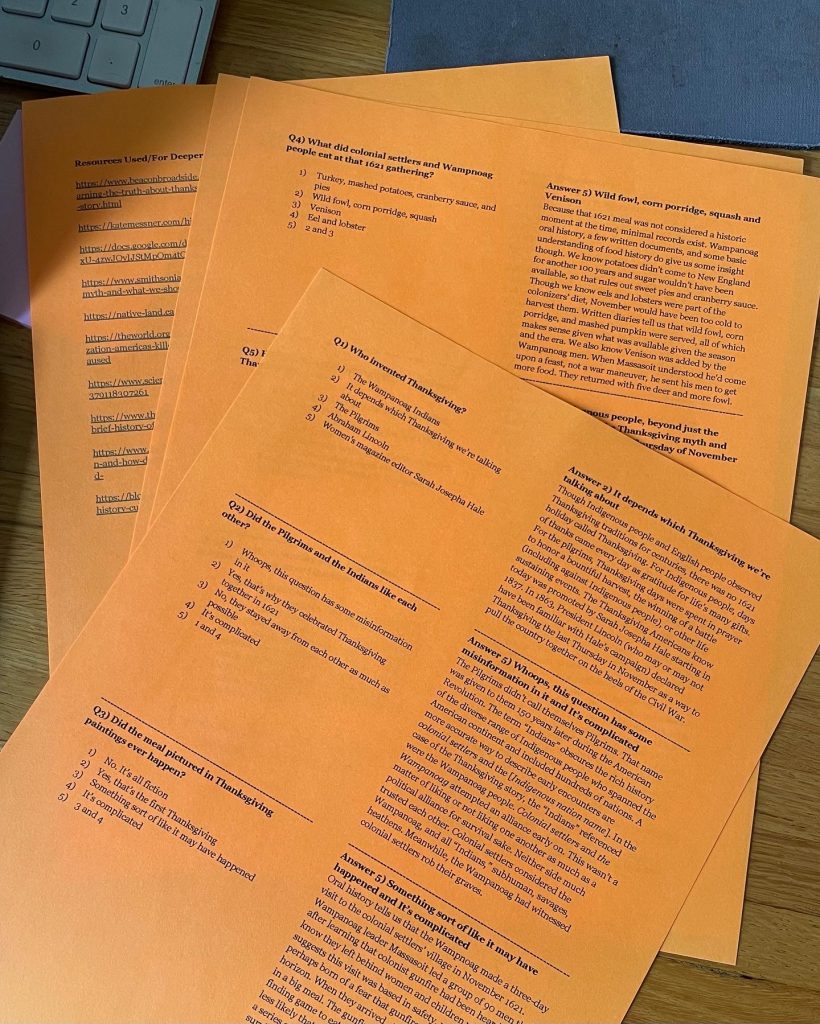
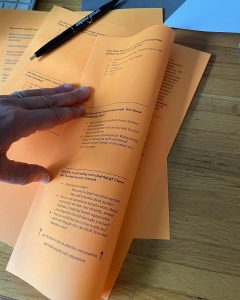
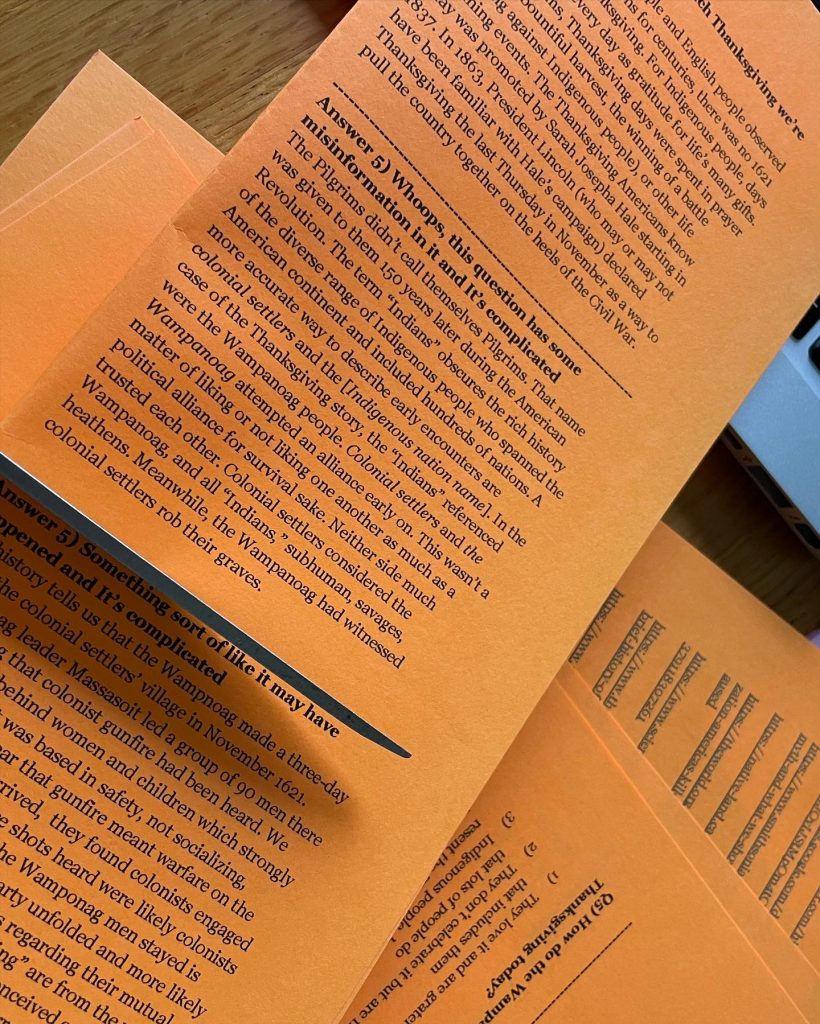
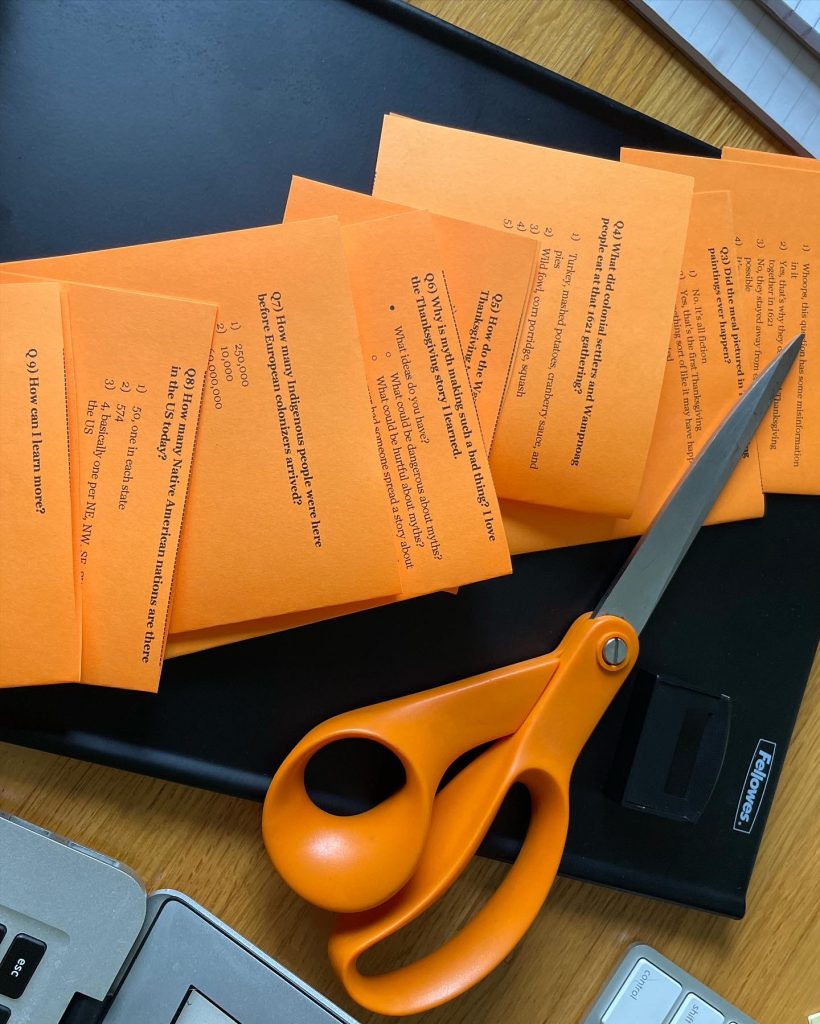
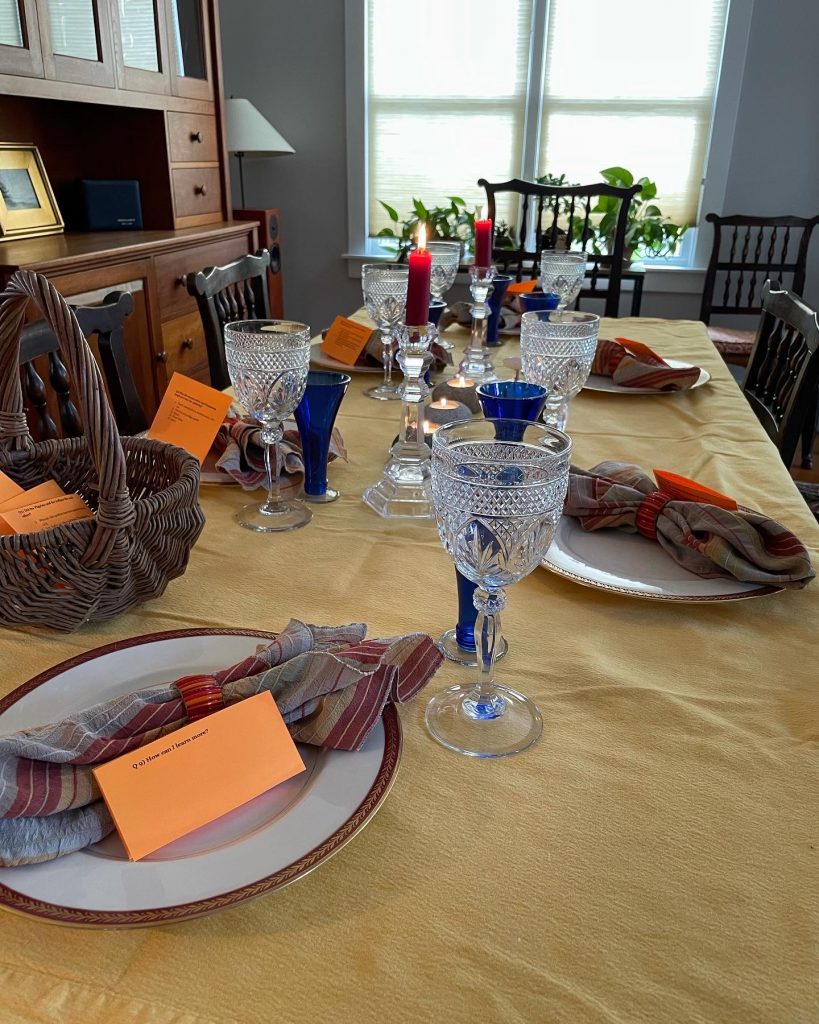
Thank you for the research resources
Claudia Tekina'ru Fox Tree
Mass. Center for Native American Awareness (MCNAA)
Native Hope
native-land.ca
National Congress of American Indians
Beacon Press
Kate Messner
Smithsonian Magazine
The World
ScienceDirect
The Atlantic
National Geographic

